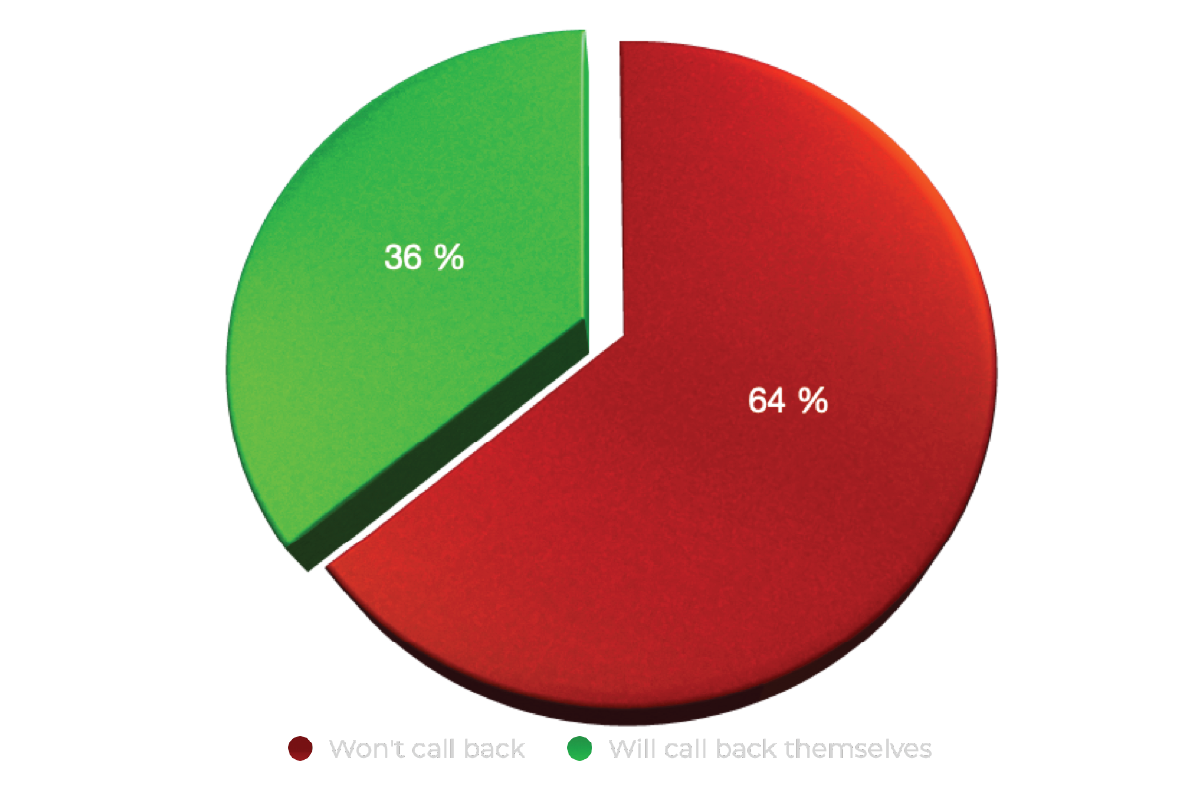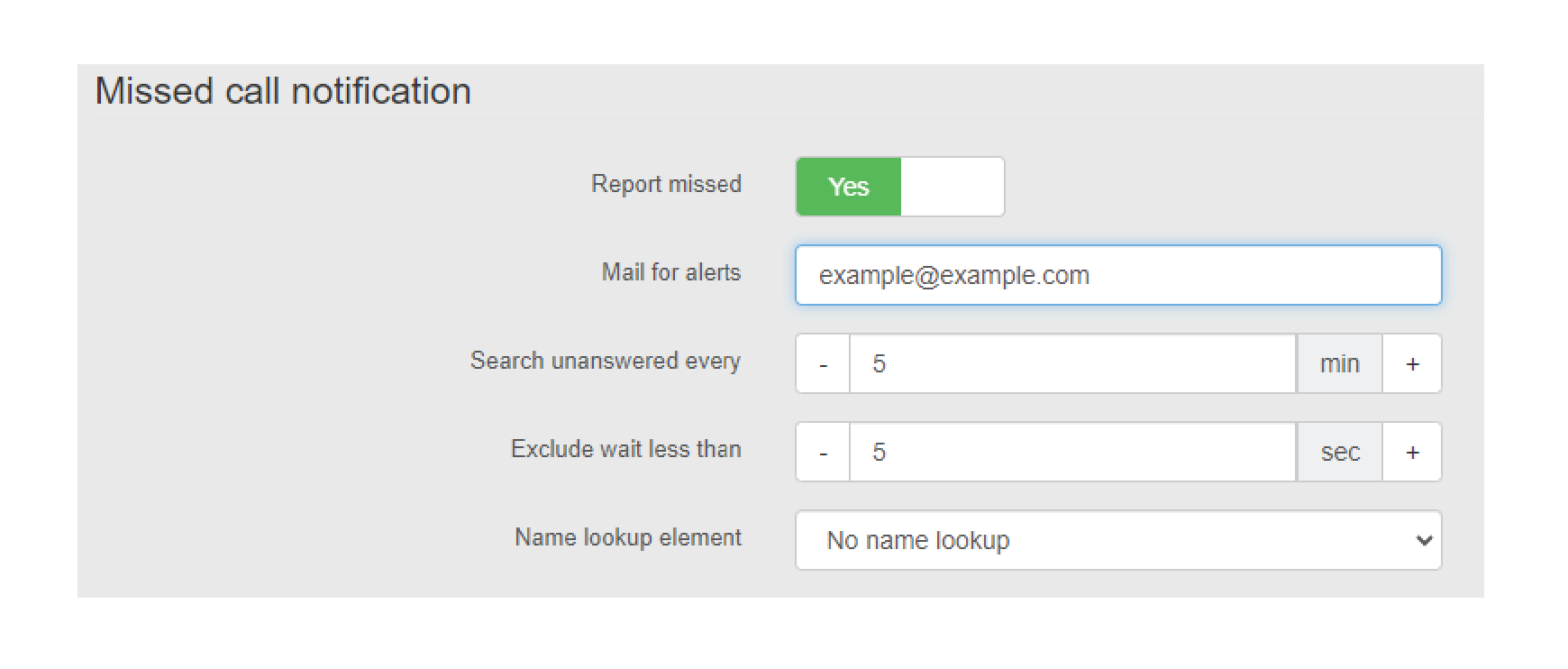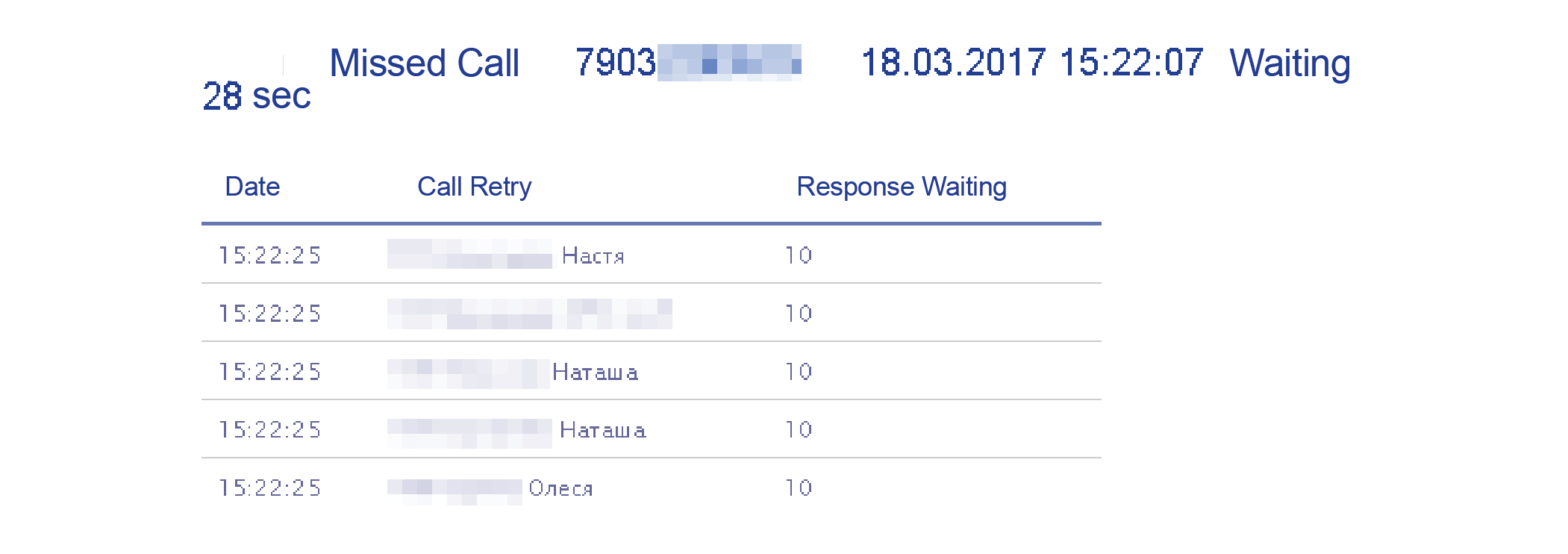Missed Call Management
Why is handling missed calls important?
A missed or unanswered call represents a potential loss of a customer, making the management of missed calls a crucial aspect of configuring a telephone system and enhancing its efficiency.
Missed calls can occur for various reasons. For instance, all employees might be occupied with calls at the moment, leaving no available lines for incoming calls. Technical issues might also arise, or customers might hang up due to long wait times.
Minimizing the number of missed calls can involve increasing the number of employees handling calls, but this approach isn't always economically viable.
However, a missed call doesn't equate to a missed opportunity. By engaging with the missed caller, it's possible to regain their interest. Returning their call and directing the conversation back to business can be effective. Generally, people react positively when they receive a call back and hear, "Good day, this is [Company Name]... we noticed a missed call from your number, how can we assist you?"
The client will call back if he couldn’t get through

The company made a call back to missed mobile phone numbers

How to Organize Missed Call Handling
What constitutes a missed call? In a mobile phone, there's a call log that displays missed calls. However, in an office telephone system, it's slightly different. A client might have called, even interacted with a voice robot, but hung up before speaking to an employee. Alternatively, they might have gone through preliminary procedures but didn't get a response from the transferred employee. Statistics on such missed calls are usually accessible only through PBX reports.
While you can track missed calls through PBX reports, it would be more efficient if the PBX itself could monitor and report them. This would save employee time and enhance the tracking of missed calls' efficiency.
In our PBX, RingoLine, we developed a dedicated module that allows you to set up such a service.


However, as there's no feedback mechanism in this approach—meaning you can't determine whether a "callback" was made to the client—such a scheme isn't always ideal
This problem can be addressed through integration with CRM systems that include task assignment and monitoring mechanisms. In this scenario, the telephone system can be configured to automatically assign tasks to designated employees. The CRM system would then oversee task completion deadlines and notify managers if those deadlines aren't met. CRM systems typically include analytical tools that allow you to evaluate your employees' performance.
Additional Methods for Missed Call Handling
In practice, automatic notifications about missed calls work well. To complement this, we've developed a separate module in our RingoLine PBX. Using predefined rules, the telephone station automatically initiates "callbacks" for the list of missed calls. All the employee needs to do is be ready to answer in case a client is connected.

By configuring settings, you can specify that callbacks will only occur during working hours. You can set a time interval during which the PBX will attempt to reach the client. You can also designate categories of missed calls to be processed. This can be useful, including for organizing your company's internal telephone network.

The algorithm is designed so that the PBX detects missed calls based on specified parameters, queues them, and dials them sequentially. If a successful connection is established with the client, the telephone system automatically transfers the call to the designated employee or group, depending on the settings.
By designating a responsible employee ready to take calls, you can ensure that you won't miss a connection in case of a callback.
In this article, we aimed to demonstrate that properly organizing missed call handling can yield positive economic effects. However, it's essential to be mindful of reasonable sufficiency, considering your specific circumstances and financial capabilities.
To summarize the key ideas discussed in the article
- Evaluate the volume of missed calls. This quantity represents an additional resource for work and customer acquisition. It might increase the number of new clients and generate additional revenue.
- Appoint an employee to handle missed calls.
- In the initial stage, set up the PBX to send email notifications to the employee. Assess how often the employee returns calls and listen to call recordings. This will help gauge the effectiveness of this approach.
- If handling missed calls proves effective, incorporate it into your business processes and integrate it into CRM. This will make management and oversight easier.
